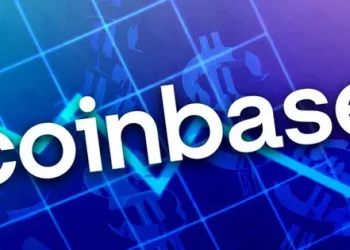In the rapidly evolving landscape of cryptocurrency exchanges, the concept of peer-to-peer (P2P) trading has gained significant traction. P2P trading offers users a decentralized alternative to traditional exchange models, allowing them to directly trade cryptocurrencies with each other, often facilitated by an escrow service provided by the platform. Among the numerous exchanges in the market, OKCoin stands out as a prominent player, known for its robust features and global presence. This article explores whether OKCoin offers P2P trading, examining its functionalities, benefits, and implications within the broader context of the cryptocurrency exchange ecosystem.
Introduction to OKCoin
Founded in 2013, OKCoin has established itself as a reputable cryptocurrency exchange platform, catering to both retail and institutional traders worldwide. Headquartered in San Francisco, California, OKCoin operates with the mission to make digital assets accessible to everyone, prioritizing security, reliability, and user experience. Over the years, OKCoin has expanded its services to encompass a wide range of cryptocurrencies, advanced trading tools, and compliance with regulatory standards across various jurisdictions.
Evolution of Cryptocurrency Exchanges
The evolution of cryptocurrency exchanges can be traced through several phases, each marked by technological advancements and shifts in user preferences. Initially, centralized exchanges dominated the market, offering a straightforward interface for trading digital assets. However, concerns over security, transparency, and control prompted the development of decentralized exchanges (DEXs) and P2P trading platforms.
What is Peer-to-Peer (P2P) Trading?
Peer-to-peer trading allows users to trade cryptocurrencies directly with each other without the need for intermediaries. Unlike centralized exchanges that match buy and sell orders through their order books, P2P platforms connect buyers and sellers directly, facilitating transactions through smart contracts or escrow services. This approach offers several advantages, including:
Decentralization: P2P trading reduces reliance on centralized entities, enhancing user autonomy and security.
Global Accessibility: Users from different regions can participate in trading, overcoming restrictions imposed by traditional financial systems.
Privacy: Transactions conducted through P2P platforms can offer enhanced privacy compared to centralized exchanges.
Lower Fees: P2P trading often incurs lower fees since it eliminates the need for order matching and other centralized exchange services.
OKCoin’s Approach to P2P Trading
In assessing whether OKCoin offers P2P trading, it is essential to delve into the specific features and functionalities provided by the platform:
1. Platform Features and Interface
OKCoin offers a user-friendly interface designed to cater to both novice and experienced traders. The platform provides comprehensive charts, real-time market data, and order execution tools to facilitate seamless trading experiences. While OKCoin primarily operates as a centralized exchange, it integrates certain features that align with P2P trading principles.
2. Fiat-to-Crypto Trading
One of OKCoin’s distinguishing features is its support for fiat-to-crypto trading pairs. Users can deposit fiat currencies such as USD, EUR, and others directly into their OKCoin accounts, enabling them to purchase cryptocurrencies. This feature streamlines the onboarding process for new users and enhances liquidity within the platform.
3. OTC Trading Desk
OKCoin operates an Over-The-Counter (OTC) trading desk, which serves as an intermediary between buyers and sellers of large cryptocurrency quantities. While OTC trading shares similarities with P2P trading in terms of direct transactions, it typically involves higher transaction volumes and personalized service tailored to institutional clients and high-net-worth individuals.
4. Regulatory Compliance
As a global cryptocurrency exchange, OKCoin adheres to regulatory requirements in the jurisdictions where it operates. Regulatory compliance is a crucial consideration for P2P trading platforms, ensuring transparency, security, and legal certainty for users engaging in cryptocurrency transactions.
Exploring P2P Trading Alternatives
While OKCoin provides robust centralized exchange services, users seeking a more decentralized trading experience may explore alternative platforms specializing in P2P trading. These platforms often employ innovative technologies such as blockchain and smart contracts to facilitate direct transactions while preserving user anonymity and autonomy.
1. LocalBitcoins
LocalBitcoins is a well-known P2P trading platform that connects buyers and sellers of Bitcoin globally. Users can create listings indicating the amount of Bitcoin they wish to buy or sell, negotiate terms directly with counterparties, and execute transactions securely through an escrow service provided by the platform.
2. Bisq
Bisq operates as a decentralized exchange that enables users to trade a variety of cryptocurrencies directly with each other. Built on the principles of privacy and censorship resistance, Bisq uses a peer-to-peer network and a multi-signature escrow system to facilitate secure transactions without relying on a central authority.
3. Paxful
Paxful is a P2P marketplace that facilitates the buying and selling of Bitcoin and other cryptocurrencies. Users can create offers, browse listings from other traders, and complete transactions using a variety of payment methods, including bank transfers, online wallets, and gift cards.
See also: How Much is Coinbase Wallet?
Conclusion
In conclusion, OKCoin does not currently offer a traditional P2P trading platform similar to those found on specialized exchanges like LocalBitcoins or Bisq. Instead, OKCoin focuses on providing a secure, compliant, and user-friendly centralized exchange experience with robust fiat-to-crypto trading capabilities and an OTC desk for institutional clients. While P2P trading offers unique advantages in terms of decentralization, privacy, and lower fees, it also presents challenges related to liquidity, regulatory compliance, and security.
As the cryptocurrency market continues to evolve, the demand for diversified trading solutions, including both centralized and decentralized platforms, is expected to grow. Whether OKCoin will integrate P2P trading functionalities in the future remains uncertain, but its current offerings cater effectively to a broad spectrum of users seeking reliable access to digital assets.
In navigating the complexities of cryptocurrency exchanges, understanding the nuances between centralized and decentralized trading models empowers users to make informed decisions aligned with their preferences and risk tolerance. As such, OKCoin stands as a testament to innovation in the cryptocurrency exchange industry, adapting to market dynamics while upholding its commitment to security, transparency, and user accessibility.
As we look ahead, the intersection of centralized and decentralized technologies promises to shape the future of cryptocurrency trading, offering new opportunities for collaboration, efficiency, and financial inclusion on a global scale.
Related topics:
Is Trust Wallet Safer Than Coinbase?

















